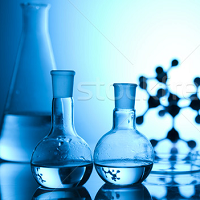The analytical chemistry means, separation, identification, quantity matter by using the instruments and methods. The analytical activities measure the effective concentration under non-ideal, concentrated conditions. The activities, determine the real chemical potential for a real solution slightly than an ideal one.
In a laboratory research for chemistry, a work place for conduct of scientific research.
The biochemistry & engineering, chemistry analyzes the perception development and it is useful to improve the cognitive abilities of undergraduate students.
Chemical are available in 3 types:
Naturally-occurring chemicals can be Liquids, Solids and Gas. It may be up of individual elements and it may contain many elements in the form of molecules.
Activities and concentrations both are used to calculate symmetry constants and reaction rates. Also, as activity concentrations similar to concentration, measure of composition. The concentrated solution are dilute solutions, if you deal with additional concentrated solutions, we have to observe the variation in concentration and calculated concentration in stability increases.
For example non ideal gases: in these non ideal gases when the chemical potential is same the pressure of a real gas and ideal gas both are equivalent.
The analytical laboratories staffed by trained material scientists, technicians, chemist and laboratory management, with industry knowledge and expertise.

Career course for analytical techniques:
- Microbiology
- Organic Chemistry
- Inorganic chemistry
- Laboratory techniques
- Instrumental analysis and analytical chemistry
- Environmental science
It was possible to improve the skills and abilities necessary to develop scientific inquiry semi-structured inquiry methodology in the laboratory of Analytical Chemistry. Organic Chemistry, Biochemistry, Inorganic Chemistry and others, because these areas need to develop diverse experimental activities.
